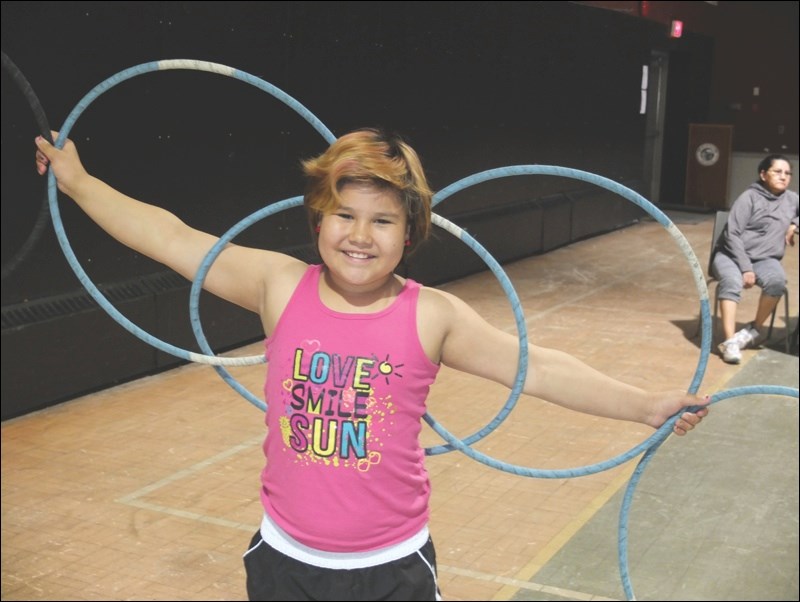Canadians often worry about losing their national identity, but such concerns are nothing new for Aboriginal people.
That’s one reason why Melissa Richard is grateful to enroll her two young children in the Flin Flon Sweetgrass Aboriginal Headstart program.
“My son can tell you Cree words,” says Richard, traces of motherly pride in her voice. “He can tell you animals using Cree words. He can count in Cree.”
Richard’s son is not alone. Since its inception two decades ago, Headstart – a preschool program designed for Aboriginal children – has been front and centre in keeping First Nations culture alive and robust.
“We’re helping to teach them the things that were lost through residential schools,” says Katie Kawerski, the friendly director of the program.
Based in the lower level of the Friendship Centre, Headstart emphasizes both structured and unstructured play as much as any other program for children ages three, four and five.
The difference is that First Nations, Métis and Inuit traditions factor heavily into the mix.
An Elder visits with the children regularly, reading to them and answering any questions their curious young minds can generate.
The kids attend traditional ceremonies, such as a sweat, learn the language and customs of their ancestors, and take on culturally themed projects.
Legacy
Headstart staff, parents and past and future graduates celebrated the program’s 20-year legacy with a gathering at the RH Channing Auditorium last Friday, May 15.
Children squealed in delight as they bounced in an inflatable castle, assembled crafts and learned how to hoop dance.
Just outside the auditorium, Kawerski flipped burgers for the hungry crowd and reminisced.
Having been with Headstart for 18 years, Kawerski couldn’t help but reflect on the value of the program.
“I like it when I see older kids come and they remember us [Headstart employees], so we’ve made an impact on them,” Kawerski says. “When a 15- or a 16-year-old says, ‘Hi’ and ‘I remember you,’ you know that you’ve made a huge impact on that child’s life.”
Kawerski says Headstart has also had a positive influence on parents by regularly involving them in the program and their child’s learning.
The confidence and community connections parents gain through Headstart have motivated some of them to return to school or enter the workforce.
“So we’re impacting the whole family,” says Kawerski.
Funded by the Public Health Agency of Canada, Headstart is in as high demand as ever. Forty children attend the program, split between morning and afternoon sessions.
Benefits
Nichole Walter, whose daughter attends the afternoon session, likes the cultural aspect of the program but sees much broader benefits, too.
“She used to be really shy and now she talks to people,” says Walter of her daughter. “She’s just not so shy anymore. It’s helped her quite a bit that way.”
Since its launch in the fall of 1995, some 800 children have gone through Headstart.
Among the graduates is Dreyden Cook, now 13, who still values his time with the program.
Dreyden says he “didn’t really know that much” about his culture before entering the program and that the experience helped prepare him for school.
Melissa Richard, whose daughter is in the program, wouldn’t hesitate to recommend Headstart to other parents.
“It’s a great program to start your kid off before they go to kindergarten,” Richard says.
And for anyone who thinks Headstart places too much emphasis on learning, Richard issues a clarification.
“It’s not so structured that they don’t get to be kids,” Richard says. “They still get to run around and have fun.”




